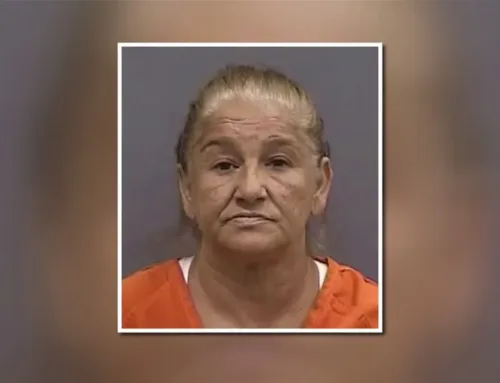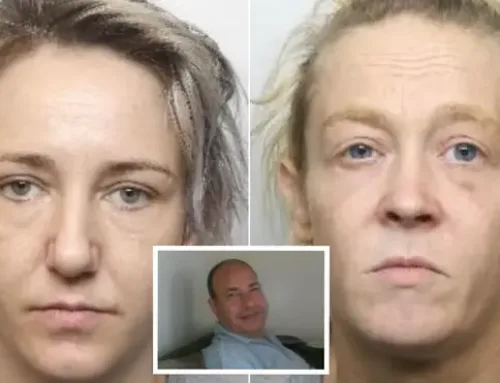Joseph Brean
Published:December 21, 2021
-National Post
In a pandemic, conflict about vaccinating children can be “significantly polarizing,” according to a judge of the Court of Queen’s Bench of Alberta.
That is especially true when the opposing parties are parents with shared custody asking a court to break their deadlock.
The Alberta judge’s mid-December decision to let a mother vaccinate her two children without the consent of their anti-vaccine father illustrates what has become the usual judicial response.
One parent wants to vaccinate their child in a pandemic. The other denies the pandemic even exists. One parent follows provincial public health advice. The other claims pandemic information from the government is propaganda, and demands to put the pandemic on trial.
It is becoming a common conflict, in which Canadian judges have recently come down just as hard on vaccine denialists as they regularly do on other conspiracy theorists who present misinformation to courts, such as Freemen on the Land. A string of recent rulings favour public health advice against pseudolegal challenges that sometimes even cite Nazi atrocities of human experimentation to a degree that one Saskatchewan judge called “offensive.”
In a decision last month , for example, an Ontario father who refuses to be vaccinated was told he could only exercise his court-ordered twice-weekly right to parenting time outdoors or at his mother’s house, and only if both he and the child are always masked. Those rules will terminate if he gets vaccinated.
In the new Alberta case, the father is now legally banned from discussing the COVID-19 with his children, or letting anyone else do it. This father caused his children stress and anxiety by showing them vaccine misinformation and age-inappropriate vaccine related material, much of it American, a judge found. His daughter, for example, expressed concern based on misinformation from her father and her friends that the vaccine might kill her.
Canada’s courts deal with conspiracy theorists, extremists and deluded fanatics all the time. There are rules that allow judges to dismiss vexatious lawsuits, and a new body of law has been built around how courts can dismiss or overrule people who make pseudolegal claims, for example, that they are sovereign citizens who are not subject to the laws of their province or country.
In the Alberta case, as in other recent ones, the novel circumstances led the judge to take “judicial notice” of certain facts, so as not to expose them to frivolous dispute. These include the facts that the vaccine has regulatory approval, public health emergencies have been formally declared, and Alberta’s public health officials do, in fact, recommend children be vaccinated.
It is a legal mechanism by which a judge can set a baseline of reality. Another of those facts is that there actually is a pandemic on, which the Alberta judge described as “so notorious and indisputable as to not require proof.”
This is particularly tricky, however, when a litigant, or their lawyer, specifically denies it.
The Lethbridge area couple divorced in 2014 and have two children, 12 and 10, for whom they share decision making responsibility.
The children are vaccinated against all the diseases in the regular pediatric regimen, and their mother wants them vaccinated against the coronavirus to prevent them contracting the disease, to allow them to safely return to regular activities, and to “teach them social and community responsibility.”
An independent legal counsel acting for the children’s best interests recommended vaccination. The father disagrees, though, and believes the vaccine risks outweigh the disease risks. He asked the court to delay the vaccination until there is more evidence about safety, and to test them for antibodies to see if they have already had it.
As in many cases, agreement proved impossible. They tried for months. In his affidavit, the father calls the vaccine experimental. His lawyer described the pandemic as “purported,” and government statements about the pandemic as “propaganda.”
Tasked with breaking this deadlock, Madam Justice J.C. Kubik had other cases in recent weeks to rely on, from Saskatchewan and Ontario.
In the Ontario case , it was the father who wanted his child vaccinated, and the mother who opposed. In such cases, an independent lawyer often acts in court to represent the child’s interests. The child told this lawyer he changed his mind and did not want the vaccine anymore because he was only 13 and did not want to die, and that he would decide in 2023 when the “full list” is available. He could not explain to the lawyer what this meant, and he wrongly believed the federal government was not recommending the vaccine.
The judge found the child’s views were “not independent,” but were the result of influence by his mother, who was ordered not to provide the child with any COVID vaccine information suggesting they are “untested, unsafe, ineffective, or that he is particularly at risk from them.”
The Saskatchewan case was more complicated, involving a diabetic child whose father was seeking the vaccine, and a mother who, the judge noted, provided material from high-profile anti-vaccine activist Robert F. Kennedy and “has done her own mathematical calculations” about the statistical risks of the pandemic.
But the submissions were similar. The mother’s lawyer blended divorce law with argument about the reality of the pandemic, the safety of the vaccine, and the court’s ability to consider these matters without bias, the judge found.
The mother’s legal brief also cites international law, including the Nuremberg Code, which refers to the American legal response to the Nazi wartime atrocities of human experimentation in concentration camps and elsewhere, and the Helsinki Declaration on the ethics of human experimentation. Both of these cast vaccination in the context of forcing people to participate in scientific experimentation, with clear allusion to the Nazis, which the judge described as not only muddled and wrong, but “at worse … offensive.”
The Saskatchewan judge felt compelled to point out the case is not about whether there is a pandemic, or whether the numbers are accurate, or whether it affects children, or whether the vaccine works. It is not about vaccine mandates, or “governments bullying or forcing citizens to take experimental drugs.”
“It is not about freedom of speech or the lack thereof. And, it is not about the inability of certain individuals to have their points of view heard to their personal satisfaction. Finally, it is not about either right or left politics. And it is not about society or the Court picking a side in a legitimate ongoing societal debate. In short, it is not about the current health situation and any suggestion it has been politicized.”
In Lethbridge, the judge did not go so far as to make the mother the sole decision maker on all medical and health matters. Rather, she said that in the event of impasse after all good-faith efforts are exhausted, the mother will have final authority.
In the specific case of the COVID vaccine, the judge ordered that the mother is free to have the children vaccinated without the father’s consent, and will make all COVID-related health decisions “now and in the future.”
Her ruling explicitly echoes the mother’s arguments. Vaccination, she ruled, “serves the children’s best interests by protecting their physical health, fostering their psychological and emotional needs and imparting important social lessons to them about maintaining and protecting their health for the sake of themselves and those around them.”




